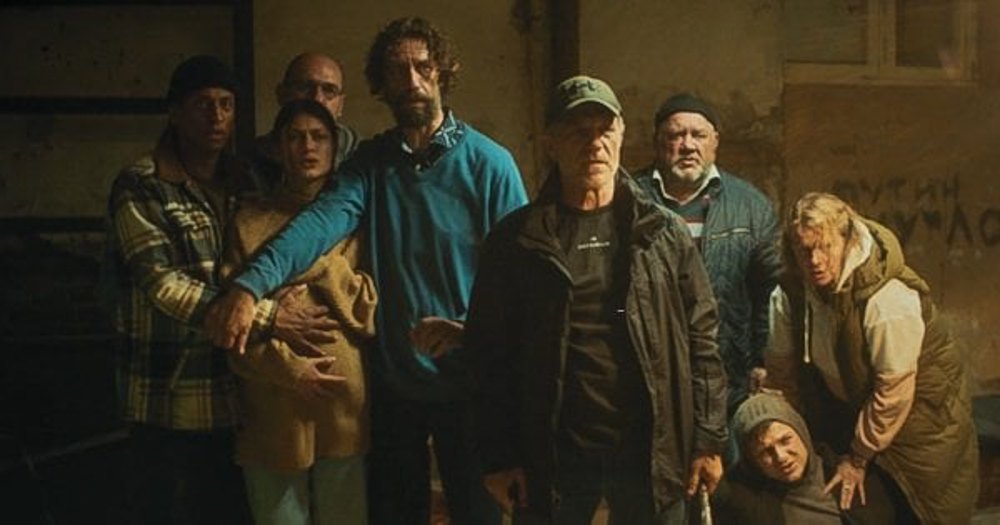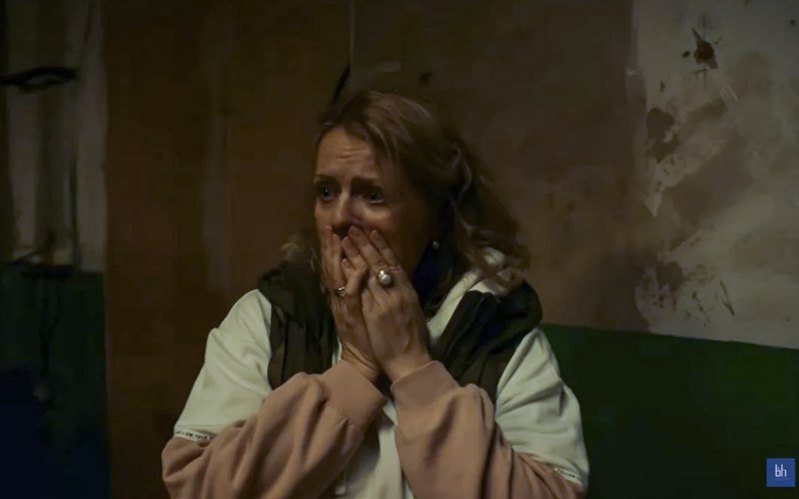Fifteen people. Two parties. One basement.
This could have been the advertising slogan for Deadlock. The producers, however, opted for a more ominous one: “Hunger is not the worst thing that can happen to you.”
Before the press screening, director Taras Kostanchuk warned that we were about to see a “propaganda film”, a “poster film”, and urged: “Do not judge too harshly. But do judge.”
Well, let’s try.
The film is set in Chernihiv, 65 km from the Russian border, during the first days of the full-scale invasion. A group of people of different ages and social backgrounds hide in the basement of a multi-storey building to escape shelling. Among them are a doctor, a government official and his wife, a pregnant woman and her foreign husband, two former military officers, a Chechen MMA fighter and his Ukrainian-speaking uncle, a truck driver, an IT worker, a wounded young man, and a singer. After an explosion blocks the entrance, they remain trapped in the basement for a week. They have little food and no information about what is happening outside. Uncertainty and scarcity push them into conflict, dividing them into warring factions.

It sounds like the setup for an airtight thriller or horror film, where characters are forced into isolation, and tensions escalate to a dangerous breaking point.
The division here is clear: pro-Russian supporters versus Ukrainian patriots. The former are led by Ivan Pulya (Volodymyr Belyaev), a former paratrooper, Afghan war veteran, and criminal. The leader of the pro-Ukrainian majority is Dmytro Mykhaylovych (Taras Kostanchuk), who also has experience as a paratrooper in Afghanistan. Doctor Petro Serhiyovych (Bohdan Benyuk), though Ukrainian-speaking, is nostalgic for the USSR. Government official Oleh Orestovych (Oleh Drach) has business ties in Russia and is ready to side with the strongest, for which his wife Emma (Irma Vitovska) harshly rebukes him.
These are strong foundations for a gripping plot. According to the press release, Taras Kostanchuk aimed for maximum authenticity: filming took place over nine consecutive days in a 5×5 metre basement, with no unnecessary decorations, and the men remained unshaven throughout the shoot.

But it doesn’t work. Deadlock carries an internal contradiction from the very first frames: it promises a thriller but delivers a propaganda piece, heavy with journalistic commentary and news clips. A poster film can still be engaging - if the characters feel real. Instead, these characters are stiff, trapped in acting clichés. And, as is often the case in such productions, the more negative the character, the more compelling he becomes.
Drach plays the two-faced bureaucrat convincingly, but the film’s true standout is Belyaev’s Pulya. His speech, gestures, intonations, and reactions feel completely natural, making his transformation from an ordinary man to an arrogant thug - and then to a manipulative tempter - all the more chilling. He intimidates some, preemptively bribes others, and adds a layer of tension to the final episodes. But even that tension is short-lived, quickly giving way to an overwhelming flood of pathos.
As the war continues, filmmakers will explore new ways to portray it. Another basement war thriller, Mousetrap by Serhiy Kastornykh, is set for release in early April. Hopefully, this attempt will be more successful.







